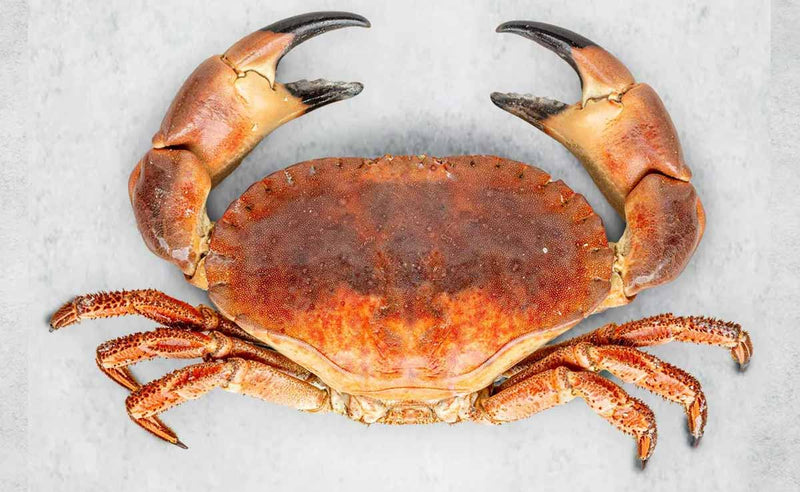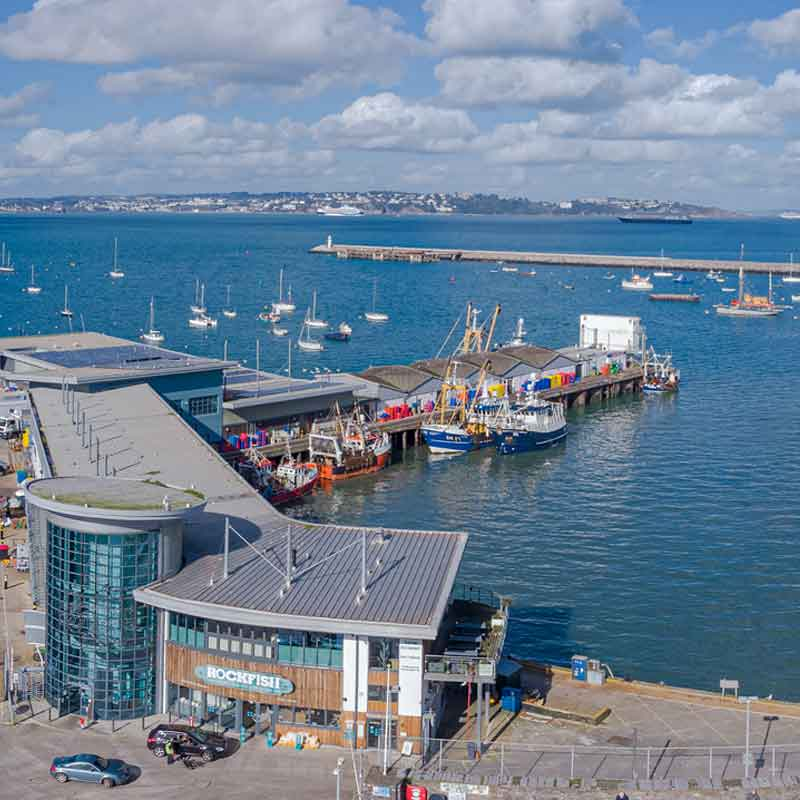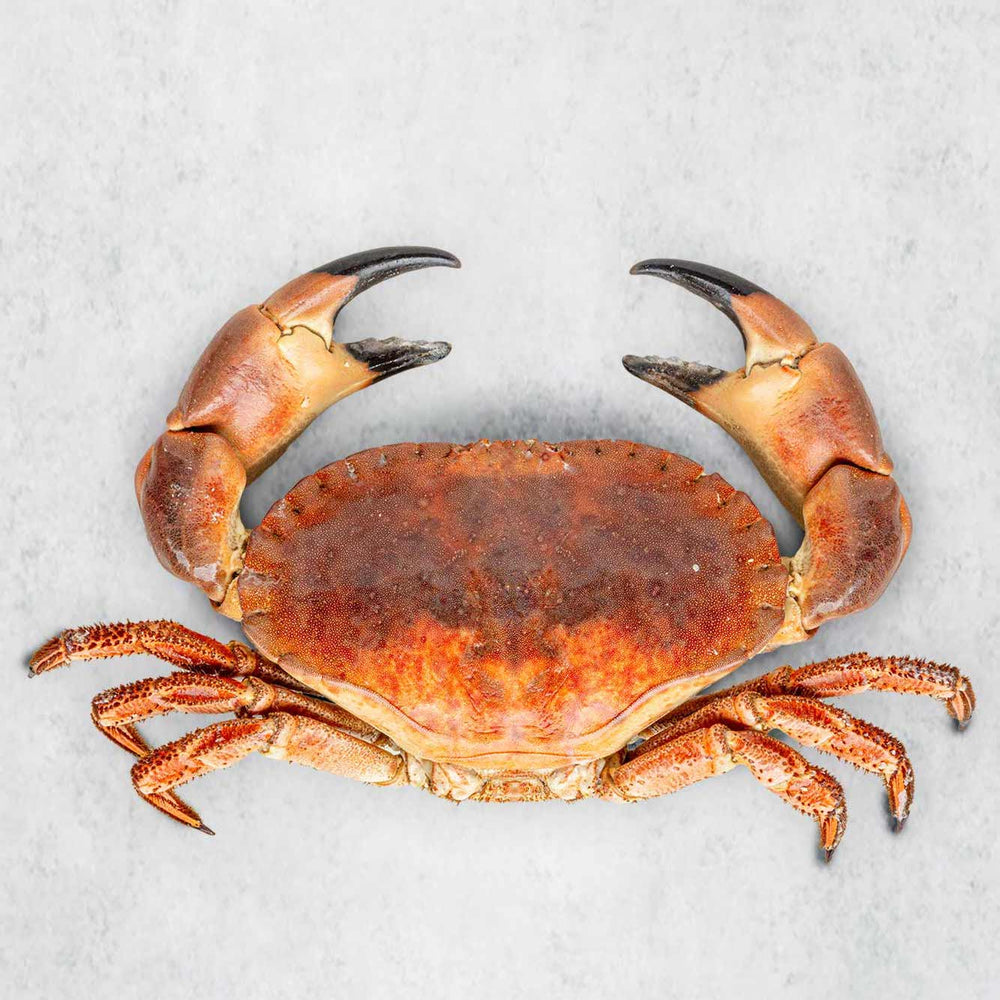New Year's Resolution: Eat more fish
We’ve all got a war chest of New Year’s resolutions and ways we want to better ourselves. But if you do one thing for yourself this new year, it should be to eat more fish.
We know what you’re thinking (your eyes are rolling already!) of course we would say that. But medical institutions worldwide, from the British Heart Foundation to the Harvard School of Public Health, all agree that one of the most significant lifestyle changes we can make for our health is to eat more fish. The NHS strongly recommends that we include at least two portions of fish in our diets every single week. And yet, 75% of the UK adult population fail to achieve this.
WHY SHOULD I EAT FISH?
Four million years ago in the lush African savannah lived a funny creature who walked on two legs. This was Australopithecus an early prototype of the modern human being. At height, Australopithecus stood at about four feet and had a brain no bigger than a chimpanzee. For three million years Australopithecus hunted the African bush eating prize game. But, despite generations of meat-eating and berry-gathering they eventually lost the evolutionary battle for survival and faded into the dust. Australopithecus died out as intellectually and vertically challenged as when they had first wandered out onto the plain.
Homo erectus on the other hand, another human precursor, who overlapped Australopithecus for the last million years of its time on earth, was a little taller and in just 200,000 years of evolution managed to triple the size of its brain. Furnished with enlarged grey matter and a range of homemade tools, erectus evolved into sapiens.
What made one a grunting bush creature, and the other a forebearer to Shakespeare, Michelangelo, and Aristotle? Why did one grow big, strong, and smart while the other ground to an evolutionary halt? The answer is fish.
Homo erectus stood up and walked to the coast. Here they ate fish, shellfish, and seaweed. Science has shown from fossil evidence that this fish diet coincided with rapid cerebral growth. The foods they ate were rich in omega-3 fatty acids which the body converts into proteins specifically used to build neurons. Put simply, modern society has fish to thank for its existence, and if that’s not an argument to eat fish, we don’t know what is.
SO, WHAT HAPPENS IF I DON’T EAT FISH?
A 2021 study in the American Journal of Clinical Nutrition made the claim that not eating enough oily fish can shorten life expectancy more than smoking. Researchers set out to see if omega-3 fatty acid levels in the blood could predict a person’s risk of early death from heart disease. Scientists found that low levels of omega-3 fatty acid could reduce life expectancy by as much as five years, compared with smoking which only knocked off just four years.
Meanwhile a 2001 study at Finnish Psychiatric Services compared fish consumption with depressive symptoms. It showed that the likelihood of both clinical depression and mild depressive episodes was significantly higher for those who rarely ate fish, compared to those who regularly did. It also suggested that the rise in depression rates generally might be because our brains were built in the Paleolithic era, on a diet that offered high levels of omega 3. Now that the modern diet contains less fish, our brains are more prone to serious malfunction.
More still, Dr Hibbeln of the US Public Health Service studied the relationship between ‘Homicide Mortality rates and Seafood Consumption.’ It demonstrated that homicide rates fell as seafood consumption increased.
In summary, if you don’t eat fish, you might not live as long, you’ll be more depressed, and you’re statistically more likely to kill someone. Happy New Year to that!
OKAY, BUT WHAT FISH SHOULD I BUY?
The ‘two portions of fish in our diet’ rule states one should be omega-3 rich oily fish like herring, sardines, and mackerel, and the other a lean fish like hake, plaice, pollack, coley, red mullet and, gurnard.
Unlike poor old Homo erectus, you do not have to spend hours knee-deep in the sludgy silt of a coursing estuary to try and get your chops around these magnificent species. These fish are all available to order on our Online Seafood Market and you can get them delivered to your door ready to eat the very next day.
Our proximity to Brixham Market (less than 17 metres) means we’re able to offer unparalleled freshness, posting fish to you the day it was landed. So, what’s stopping you? Listen to the beating drum of your forefathers pounding within you, and become the mean, lean, fish-eating machine evolution designed you to be!



